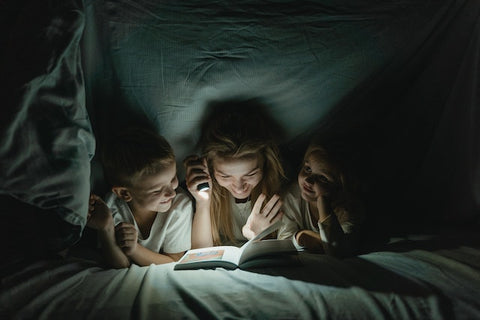As parents, we all want the best for our children. We do our best to make sure that they have everything they need to lead healthy and successful lives. But knowing how to achieve that can at times be overwhelming, there’s just so much conflicting advice out there. If only there was a study that could give us the answers! The good news is: there is.
When British scientists decided to take a survey of the nation’s babies shortly after World War II, little did they imagine their study would end up spanning nearly a century, gifting the world the largest data set on child development ever created.
Britain’s National Child Development Study (NCDS) initially surveyed 17,205 women, some 98% of the women who gave birth in Britain during one week in March 1958. The study was initially created to find out how to reduce the occurrence of stillbirths, but five years on, the scientists decided to follow up on the children born to see how they were doing.
Since then, another eight surveys have taken place, tracking thousands of people throughout their lives, giving us unparalleled data on life outcomes and their causes. While that information is interesting for scientists, it’s also incredibly useful for parents who want to know how they can help their children thrive throughout life.
It’s no surprise that one of their biggest findings is that children born into poverty do less well throughout their lives. But they also found children who had ‘beat the odds’, overcoming a disadvantaged childhood to flourish.
Helen Pearson, author of The Life Project, which tells the story of the NCDS, explains: “The data showed that what mattered more than anything else was parents. Having engaged, interested parents in those first few years of life was strongly linked to children going on to do well at school later on. In fact, quite small things that parents do are associated with good outcomes for children. Talking and listening to a child, responding to them warmly, teaching them their letters and numbers, taking them on trips and visits.”
And that’s not all. “Reading to children every day seems to be really important, too. So in one study, children whose parents were reading to them daily when they were five and then showing an interest in their education at the age of 10, were significantly less likely to be in poverty at the age of 30 than those whose parents weren't doing those things.”
Reading and Routine Are Fundamentally Important
If the findings above sound too much like vague advice to ‘be a better parent’ and not enough like practical tips, Pearson does point to two specific things parents can do to make a real difference.
She points to one study carried out by the NCDS, which looked at bedtime routines of 10,000 children born at the turn of the millennium. It found that children who went to bed at different times throughout the week were more likely to have behavioral problems. However, “those that switched to having regular bedtimes often showed an improvement in behavior,” Pearson says. That was really crucial, because it suggested it was the bedtime routines that were really helping things get better for those kids.”
In another, the researchers looked at children who read for pleasure, whether it was books, magazines, comics or anything else. They found that children who read for pleasure between the ages of five and ten did better across the board at school than those who didn’t, even when they controlled for IQ, social class and so on. “It seemed as if it was the reading which really helped those children go on and score better on those school tests later in their lives, Pearson said.
Why Not Create a Reading Routine?
In light of these findings, it makes sense to combine the findings of the studies, and create a regular bedtime routine which includes daily reading.
The first step is to choose an appropriate time for your children’s age. Children’s sleep consultants Dr. Debbie Freidman Sasson and Melissa Freidman Zdrodowski recommend the following:
- 15 months to 3 years: As naps start to become irregular, you may wish to bring bedtime forward a little to compensate. Set it at around 6pm to 7.30pm. Overall, children will be sleeping 12-14 hours a day.
- 3 to 6 years. By now the afternoon nap will start to be dropped completely; children will need an extra hour at night to make up for it. Bedtime should be between 6pm and 8pm.
- 7 to 12 years. Children are sleeping less, but will still need 10-11 hours a night to make up for all the running around they do during the day. Set their bedtime at between 7.30 to 9pm.
- 13 to 18 years. Some teenagers start to need more sleep than they did when younger, although all will need at least 9 hours a night. Set their bedtime by counting backwards from what time they need to be up for school, and adding in half an hour to fall asleep.
The next step is to build a regular routine that calms children down after the excitement of the day and mentally prepares them for sleep. This typically includes taking a bath, brushing teeth and getting pajamas on, but reading is a super quiet activity to do as part of a bedtime routine, either before your children head to their rooms, or before turning out the light.
Younger children will want to be read to. Help them find books they enjoy and will want to hear. Older children may prefer to read by themselves.
If your children are not used to a routine it may take a little while to get them used to having one, but stick with it and they’ll soon settle into it.
For more on reading and routines, check out our previous blog series on reading aloud with children.





